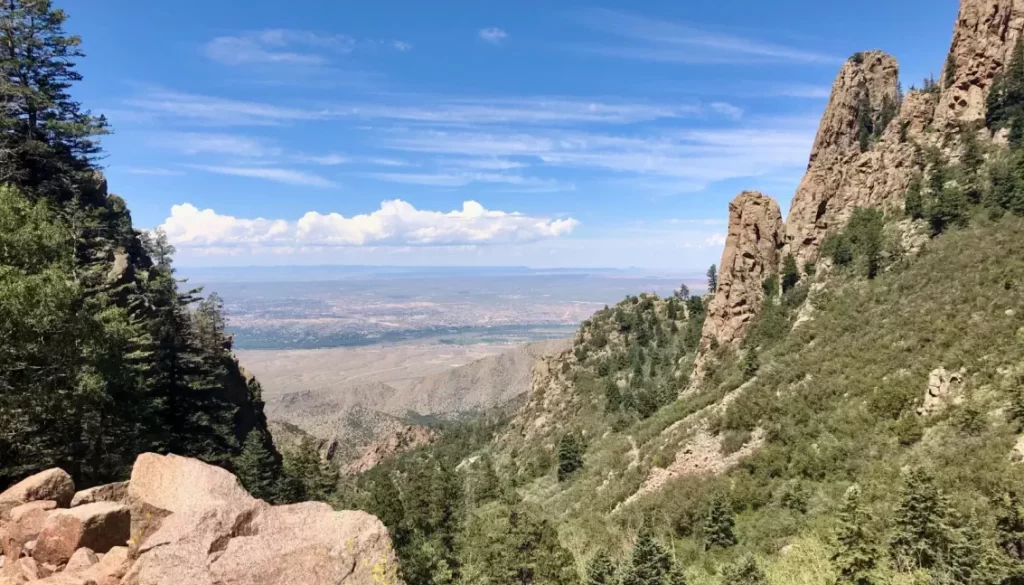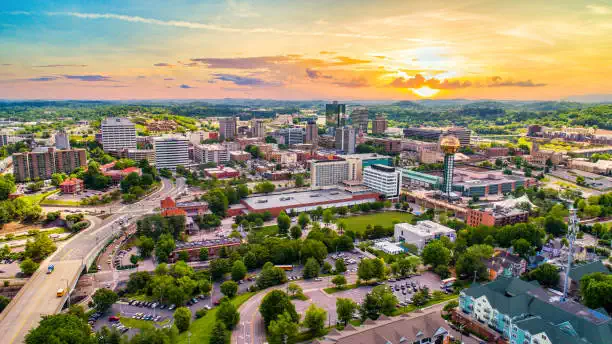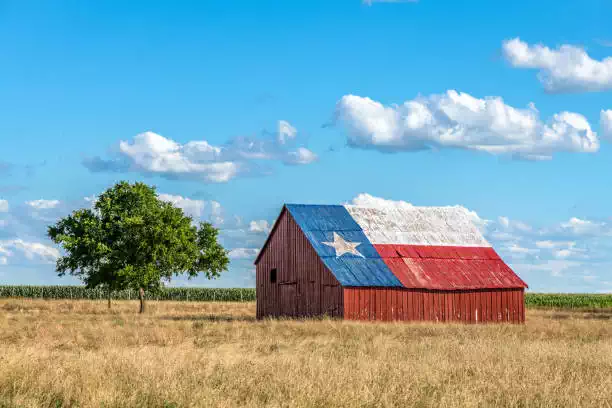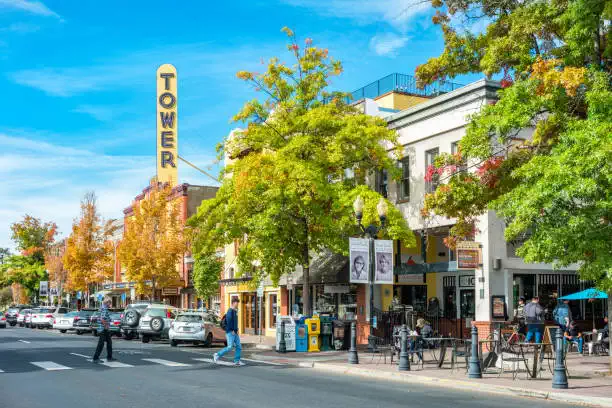Grants for Seniors in New Mexico
Last Updated on April 18, 2024 by Rachel
Help for Seniors in New Mexico – 31 Assistance Programs
New Mexico has a lot to offer with its affordable cost of living and breathtaking landscapes for senior citizens. Although it is not the safest state, some towns such as Sandia Heights, White Rock, Ruidoso, Los Alamos, Placitas, and Eldorado at Santa Fe are very comfortable and relaxing considering the living conditions and reasonable housing prices. The federal government, the State of New Mexico, and local charity organizations also provide a whole range of programs and services for the elderly.
State Resources for Seniors
The New Mexico Aging and Long-Term Services Department is in charge of the welfare of elderly residents. This department provides resources for seniors, to help them get access to necessary assistance. Some programs are administered by the state, while others are offered by charities and nonprofits. The website of the New Mexico Aging and Long Term Services Department, seniors can find useful links to internal and external assistance services. To get these resources, visit https://nmaging.state.nm.us/
Financial Assistance
The Social Security Administration provides financial assistance for low-income seniors through the Supplemental Security Income (SSI) Program. This program assists seniors over the age of 65 by giving them monthly payments to help them meet their basic needs. Eligibility for SSI is determined by income and asset value. Seniors who wish to apply must have assets worth not more than $2,000. In calculating asset valuation, certain essential assets like the residential home and a vehicle for getting around are excluded. The exact amount awarded to recipients varies depending on the specific need compared with the income earned. To find out more about Supplemental Security Income, visit https://www.ssa.gov/benefits/ssi/.
Employment Assistance
New Mexico Senior Community Service Employment Program (SCSEP) was sponsored by the federal authorities and has been managed by the State of New Mexico with the intent of providing job opportunities for low and moderate-income senior residents. Seniors who wish to have a part-time job that is compatible with their health and financial status and 55 years of age or older are eligible for this program. Eligible applicants mostly work at non-governmental or governmental establishments that pay minimum wage for 20 hours per week. Another program that is related to this program was created and has been administered by the New Mexico Aging & Long-Term Services Department is the New Mexico Senior Employment Program. It is the equivalent of the SCSEP but financed by state officials. This program may also offer financial assistance based on the applicant’s income, salary, and working hours. It presents various training courses for seniors to improve their employment skills and abilities. To learn more about these programs, please follow the link http://www.nmaging.state.nm.us/Employment_Programs.aspx or dial 1 505 469 4193.
Housing and Rent Assistance
The New Mexico Emergency Rental Assistance Program was established and has been subsidized by the New Mexico Department of Finance & Administration for citizens who are having financial problems. The program aims to reduce homelessness throughout the state. Low and moderate-income seniors who are looking for rent support are prioritized by this program. The amount of help depends on the economic situation of the applicant. Find out more at https://www.nmdfa.state.nm.us/local-government/grants/ or make a phone call at 505 827 4984.
The Salvation Army of New Mexico is highly effective in this state as a non-governmental organization. It offers various programs for people in need including shelter and housing assistance for families. Particularly seniors who are in financial hardship are urged to apply for the SilverCrest Senior Residences. These residences have furniture, essential needs, meal service, and health support for residents. The link to their official website is as follows https://newmexico.salvationarmy.org. In addition to the Salvation Army, there are numerous non-profit organizations and charities that prioritize supporting senior citizens in the country.
Home Repair Grants
Home Repair Grants are available for seniors to ensure that their homes are well-maintained and safe.
The Section 504 Home Repair Program provides loans and grants to help seniors fix their homes. The program is available to all seniors, however, those under the age of 62 are only eligible for loans. Loans of up to $40,000 can be obtained to undertake repairs to get rid of challenges to health and safety. The funds can also be used to make modifications to make the home more accessible, such as installing wheelchair ramps, reducing the height of countertops, etc. Loans have a 1% interest rate and a 20-year repayment period. Seniors over the age of 62 may qualify for grants with a lifetime limit of $10,000. These grants are provided to carry out repairs for seniors who cannot afford home repairs otherwise. Seniors who receive grants are expected to live in the home for at least 3 years afterwards. Selling the home earlier than that would require them to pay back the grant received. Other requirements of the program are at https://www.rd.usda.gov/programs-services/single-family-housing-programs/single-family-housing-repair-loans-grants/nm.
Seniors can also get help with maintaining their homes through assistance provided by Habitat for Humanity. This nonprofit organization has volunteers who help carry out minor home repairs for free. Habitat for Humanity can help with non-structural repairs, installation of ramps for wheelchairs, fence repairs, etc. All services are provided after considering the income of the senior and the type of repairs necessary. To learn more about what Habitat for Humanity offers, visit https://habitatabq.org/home-preservation/.
The New Mexico Mortgage and Finance Authority provides assistance with repairs and modification of the homes of low-income seniors. These modifications may be done to make the home energy-efficient, or for accessibility. Major repairs like replacement of heating systems are also covered. Information on the full range of services can be found at https://housingnm.org/home-repair-and-energy-efficiency/home-rehabilitation/home-investment-partnership.
Healthcare Assistance
New Mexico Centennial Care was formed and has been managed by the New Mexico Department of Health for low and moderate-income persons. It is a Medicaid service that has started to function in 2014. There are various Medicaid services for seniors and categories to address their healthcare needs. Older citizens who need long or short-term medical care are encouraged to apply to this care center. The main criteria are the health condition, residence, and the total income of the household. For more information, please visit https://www.hsd.state.nm.us/lookingforassistance/centennial-care-overview/ or dial 1 800 283 4465.
New Mexico Falls Prevention Coalition (NMAFP) is established by the local charity organizations and has been led by the State of New Mexico to prevent older adult fall-related death since it is a very common cause of death throughout the state. In addition to fall prevention for seniors, the main goal of this coalition is to make sure that every older citizen is healthy and practicing physical activities. Even though most of older citizens think that it is better to stay at home to avoid falls, the real solution is to maintain the health condition. Hence, this coalition offers various activities. Further information can be accessed by clicking on the following link https://healthinsight.org/nm-fall-prevention or get in touch with 1 505 476 4757.
New Mexico Area Agency on Aging was created to help seniors who are 60 years of age or older with their various needs. Elder individuals who are looking for health assistance at their homes or a healthcare center are urged to make connections with this department. It guides you to find the best Adult Day Care Center, Caregiver Support, Homemaker Service, or Disease Prevention based on your general health condition. Explore more opportunities through the following link http://www.nmaging.state.nm.us/aaa.aspx or contact 1 505 476 4793.
Help with Dental Care
In relation to oral health, several programs provide dental grants or assistance to seniors to improve their oral health. These programs cover dental exams, cleanings, fillings, extractions, and other necessary dental services.
New Mexico Community Dental is a dental clinic that provides high-quality dental care to the residents of the state, including seniors. The dental services offered include x-rays, cleanings, fillings, whitening, extractions, crowns, etc. All of these services are provided whether or not the senior has health insurance. For older people who have no health insurance, discounts may be offered and a sliding fee scale used to decide the charge for care. This sliding fee discount is dependent on the income level of the senior and can reduce the cost of some dental treatments to as low as $20. To find out more about the discounts, visit https://nmcommunitydental.com/income-based-discount-program/.
The Department of Dentistry at the University of New Mexico (UNM) runs a clinic that offers low-cost dental care to patients of all ages, including the elderly. This clinic is staffed by professional dentists and dental residents who offer a wide range of dental care options, including complicated procedures. Some of the services provided include implants, crowns, oral surgery, dentures, root canals, etc. To get help from UNM’s clinic, visit https://unmhealth.org/services/dentistry.html.
Utility Bills Assistance
The New Mexico Low Income Home Energy Assistance Program was created by the federal government and has been managed by the Human Services Department. This program aims to reach out to everyone in need of utility support. Seniors citizens who are facing financial challenges in paying their utility expenses are qualified for this assistance. Eligible candidates will receive a certain amount of discount on their bills based on their total income and the size of the household. To see the application form, please click on the link https://www.hsd.state.nm.us/lookingforassistance/low_income_home_energy_assistance_program/ or make contact with 800 283 4465.
The Lifeline Program can help eligible low-income seniors get discount on their phone bills. Lifeline offers discounts on phone and broadband services from participating companies. Lifeline assistance may also provide funds to purchase a small smartphone for use. A senior can only use one Lifeline discount, and eligibility for the program is determined by income levels. Seniors can visit https://www.centurylink.com/aboutus/community/community-development/lifeline.html#lifeline to learn more about Lifeline.
Food Assistance
Congregate Meals are presented by the State of New Mexico on various sites across the state. These meals are mostly served in a senior or community center that older people can easily access. The main aim of providing these services is to encourage older individuals to socialize and connect with society while eating their meals. There is a good deal of educational courses and seminars on nutritious and healthy food to enhance the well-being of the persons at these centers. For further information, please go to http://www.nmaging.state.nm.us/meals-and-nutrition.aspx or call 1 866 654 3219.
The New Mexico Nutrition Program assists low and middle-income seniors with a healthy and nutritious breakfast and lunch. It is intended to increase the well-being and awareness of participants on healthy eating habits. To read more at http://www.nmaging.state.nm.us/aaa.aspx or make a call to your local Senior Center at 505 768 2084.
Home Delivered Meals New Mexico is offered by the New Mexico Aging & Long-Term Services Department for older people who are not able to cook at their homes or afford to buy healthy and nutritious food. Low or moderate-income seniors are qualified for this meal service. It sends hot, cold, or frozen food to participants’ homes. To learn more, click the link http://www.nmaging.state.nm.us/meals-and-nutrition.aspx. More food programs for seniors are being established to make it easier for those in need to access nutritious food and meals.
The Commodity Supplemental Food Program (CSFP) provides food items to eligible seniors in the state. This is done in the form of food boxes provided to serve as a means of supplemental nutrition. These boxes contain nutrient-rich items like milk, canned fruits, vegetables, cereal, etc. The contents are not intended to serve as a full month’s worth of food supplies, but rather as a booster food for the elderly. Seniors can find more details on CSFP in New Mexico at https://www.hsd.state.nm.us/lookingforassistance/commodity-supplemental-food-program/.
The Senior Farmers’ Market Nutrition Program (SFMNP) is another initiative that helps seniors get access to food items. SFMNP assists low-income seniors by providing them access to fresh fruits, honey, vegetables and herbs. This program offers coupons which beneficiaries can exchange for locally grown agricultural produce in the state. Information on the program is available at https://www.fns.usda.gov/sfmnp/senior-farmers-market-nutrition-program.
- Help for Seniors in South Carolina
- Senior Statistics of Georgia
- Help for Seniors in Rhode Island
- Grants for Seniors in Milwaukee
- Raised Toilet Seats for Seniors
- Help for Seniors in Massachusetts
- Grants for Seniors in Winston-Salem
- Help for Seniors in Utah
- Grants for Seniors in Texas
- Grants for Seniors in Idaho
The Supplemental Nutrition Assistance Program (SNAP) Program helps low-income residents with resources for food. SNAP provides funds to eligible residents to help them buy food or seeds to be planted for food. Eligible seniors receive an Electronic Benefits Transfer (EBT) card with which they can access their benefits. This card can be used to make purchases at grocery stores and other approved outlets. The EBT card can only be used to purchase authorized food items. Additional detail on SNAP can be gotten from https://www.hsd.state.nm.us/lookingforassistance/supplemental_nutrition_assistance_program__snap/.
Transportation Assistance
Transportation programs for seniors in New Mexico help older citizens get to medical appointments and other important places like grocery stores. These programs provide mobility for seniors who may be unable to get around otherwise.
Blue Cross Blue Shield of New Mexico (BCBSNM) provides medical transportation for seniors who are unable to find any other form of transport. The assistance provided is completely free and covers medically necessary visits to the hospital. Seniors can visit https://www.bcbsnm.com/community-centennial/plan-details/transportation for more information.
The New Mexico Department of Transportation provides the Park and Ride transport service. This is a low-cost shuttle service that seniors can take advantage of to get to locations across the state. Services are available every day, except for designated public holidays. This option can help seniors conserve financial resources and start from $2 for a trip. Further details on Park and ride can be obtained from https://www.dot.nm.gov/travel-information/park-and-ride-bus-shuttle-service/.
Z Trans is a transportation provider that operates within the state. Seniors who live within the Ruidoso service area can get rides through the Senior Dial-A-Ride Service. This service provides transportation for seniors to help them get from their homes to any location they need to be in. Details on this can be found at https://ztrans.org/services/.
Other providers of transportation assistance can be found listed at https://nm.medicalhomeportal.org/services/category/545.
Charities and Organizations
Silver Horizons is a nonprofit organization that provides assistance to seniors in New Mexico. This charity offers various forms of help to seniors to ease the burden of meeting all their needs. Seniors can receive financial assistance to pay for household and utility bills. Assistance is also given to help with home repairs and ensure safety standards are met. Free groceries are available to help eradicate hunger and promote healthy nutrition among the elderly. Services are provided to seniors from the age of 50 years. To get started with getting help from Silver Horizons, visit https://www.silverhorizons.org/home.
The Catholic Charities of New Mexico is another charity organization that helps seniors in the state. Several programs are offered to help meet different needs of the older residents of New Mexico. Housing assistance is provided to seniors who are homeless or on the verge of homelessness to help them get back on track to getting more permanent housing. The elderly can also take advantage of transportation services provided by Catholic Charities to get to medical appointments, grocery stores, etc. This program is open to all seniors over the age of 60 years, irrespective of their income. Seniors can get help from Catholic Charities by going to https://www.ccasfnm.org/.
Seniors can get aid from the Salvation Army to meet some of their needs. Food pantries in various parts of the state provide food for older residents. Clothing assistance is also available, along with financial aid to pay for urgent needs like rent and utilities. Referrals are provided to direct the elderly to other agencies where they can get help from. Seniors can visit https://newmexico.salvationarmy.org/ to get help from the Salvation Army.
Assistance for Senior Veterans
The Rural Veterans Transportation Program is provided by the New Mexico Department of Veterans Services (NMDVS) for veterans across the state. This program helps veterans by providing them with free transportation to and from medical appointments. Veteran are required to book three days ahead and receive a round trips ride for free. The program helps veterans who live in rural areas with low population density, and improves their mobility options. Program details for the Rural Veterans Transportation Program are available at https://www.nmdvs.org/rural-veterans-transportation-program/.
The Department of Veterans Affairs (VA) also provides healthcare services for veterans in the state. This is done through VA medical centers located in the state. At these medical centers, veterans can receive various forms of healthcare, including emergency care, x-rays, management of chronic diseases, etc. Information on the VA medical centers in New Mexico can be found at https://www.va.gov/new-mexico-health-care/health-services/.
New Mexico Veterans Integration Centers (NMVIC) offers assistance to veterans by giving them appliances for the home. Veterans can get clothes, furniture, and other home appliances from NMVIC to help furnish their homes. Food items are also provided to support healthy nutrition and eradicate hunger. Housing services ensure that veterans can get a temporary place to stay while they seek more permanent housing options. Information on the activities of the New Mexico Veterans Integration Centers can be found at https://nmvic.org.
Veterans who require assisted living or continuous medical care can take up residence in the New Mexico State Veterans’ Home. This is a comprehensive care and living facility that provides all the necessary care for veterans while giving them a place to live also. A fee is charged for residency in this Veterans’ Home. For more details, visit https://www.nmhealth.org/about/ofm/ltcf/nmsvh/.
Frequently Asked Questions (FAQs)
1. What financial assistance programs are available for seniors in New Mexico? In New Mexico, seniors can access financial aid through programs like the New Mexico Energy Assistance Program (LIHEAP) for help with utility bills, the Senior Citizens’ Law Office for legal assistance on financial matters, and the State Pharmaceutical Assistance Program for prescription drug costs.
2. How can seniors apply for Medicaid in New Mexico? Seniors can apply for Medicaid in New Mexico online through the Yes New Mexico portal, by phone, or by visiting a local Human Services Department office. Required documentation includes proof of income, assets, residency, and age.
3. What housing assistance is available for seniors in New Mexico? The New Mexico Mortgage Finance Authority (MFA) provides the Housing Choice Voucher Program (Section 8) for rental assistance, as well as information on affordable senior housing units. The Home Modification Program helps seniors make necessary adaptations to their homes for safety and accessibility.
4. Can seniors receive help with utility bills in New Mexico? Yes, the Low-Income Home Energy Assistance Program (LIHEAP) offers financial aid to seniors struggling with their heating and cooling expenses, ensuring they maintain a comfortable living environment.
5. How do seniors get help with prescription medications in New Mexico? The New Mexico Aging and Long-Term Services Department provides information on the State Pharmaceutical Assistance Program, which assists with the costs of prescription medications for eligible seniors.
6. Are there property tax relief programs for seniors in New Mexico? Senior citizens in New Mexico may qualify for property tax rebates or exemptions based on age, income level, and residency status. Information on these programs can be obtained from the New Mexico Taxation and Revenue Department.
7. What in-home care services can seniors access in New Mexico? The Centennial Care Community Benefit program offers in-home care services for seniors, including personal care, chore services, and emergency response systems, to support independent living.
8. How can seniors access transportation services in New Mexico? Many local Area Agencies on Aging in New Mexico provide transportation services for seniors, offering rides for medical appointments, grocery shopping, and other essential activities.
9. What nutritional programs support seniors in New Mexico? The Senior Meal Program offers nutritious meals to seniors at community centers and through home delivery for those who are homebound, aiming to ensure seniors have access to healthy food.
10. How can seniors in New Mexico receive legal assistance? The Senior Citizens’ Law Office offers free legal services to residents 60 and over, covering areas such as estate planning, healthcare, housing, and consumer issues.







